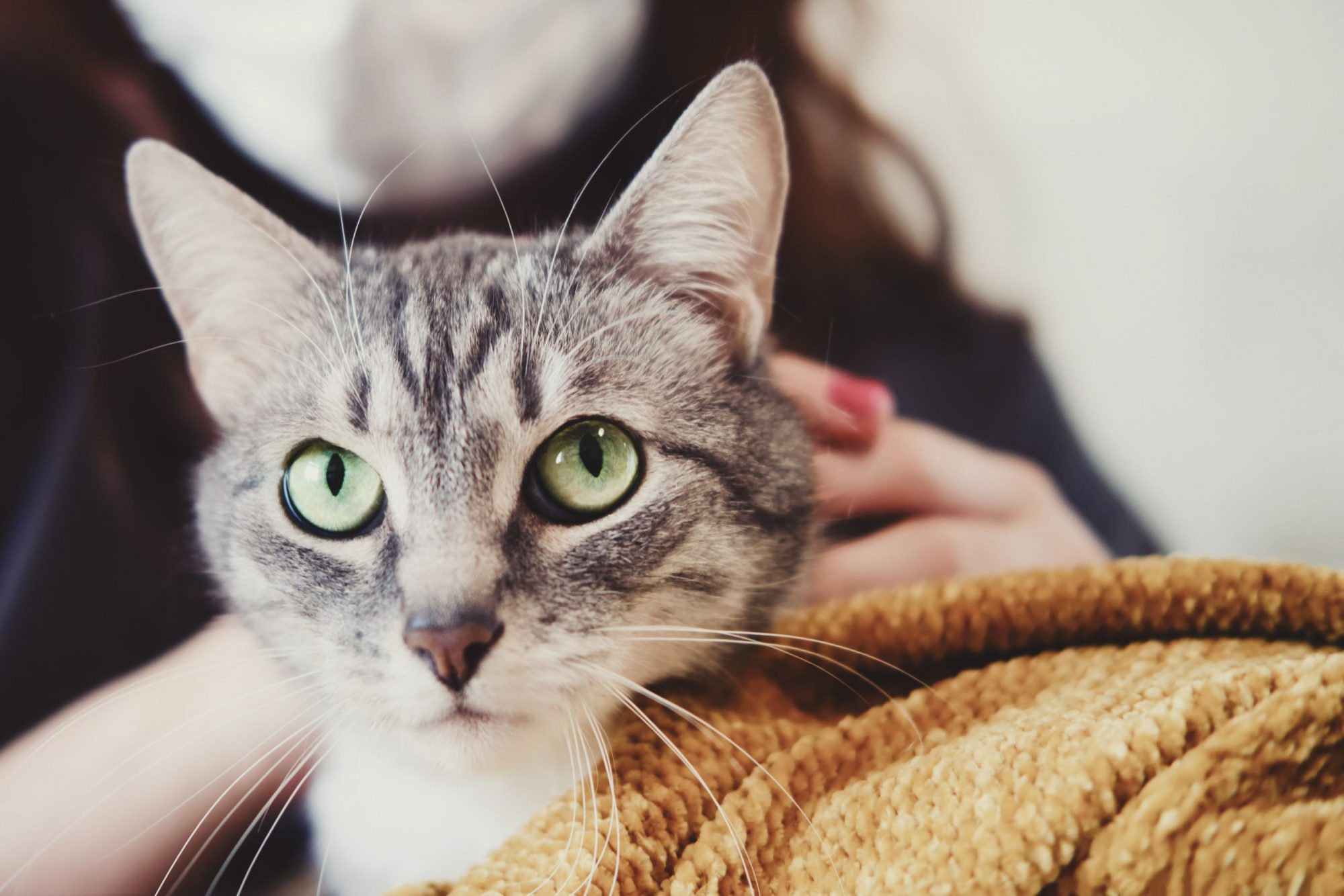Coughing Cat: Hairball or More???

Cats are known for being quiet and stealthy, so a loud coughing kitty is certainly cause for concern. When a pet owner notices their cat making a new noise, a lot of thoughts might run through their head. Is it a hairball? Allergies? Cat asthma? Kennel cough? East Sacramento Veterinary Center has the answers you need when it comes to a coughing cat.
Potential Causes of a Coughing Cat
Changes in your pets breathing and noises like a cough can have many potential underlying causes. Some possibilities are fairly common while others diagnoses are seen less often.
Whenever our veterinarians have a coughing kitty in the hospital, some of the conditions we need to consider include:
- Cardiac disease—Congenital or acquired heart disease can sometimes cause coughing, especially if congestive heart failure has ensued.
- Cat asthma—When the lower airways become inflamed, wheezing, coughing, and breathing difficulty can occur. Feline asthma is often triggered by allergies to things like pollen and dust.
- Lung disease—Primary lung issues such as bronchitis or pneumonia can lead to a coughing cat. Tumors in the chest may also lead to a cough.
- Parasites—Unwelcome parasites such as lungworm and heartworms can cause inflammation in the lungs and airways, which could lead to coughing.
- Infectious—Cats can be affected by infectious disease agents such as viral rhinotracheitis and Bordetella, organisms that are commonly implicated in kennel cough.
- Upper airway irritation—Irritation of the pharynx or trachea by drainage, foreign bodies, or inflammation can also cause a cough.
While many pet owners try to blame coughing on a hairball, the reality is that hairballs should not be a common or frequent occurrence. Any prolonged (or more-than-occasional cough) should not be written off as coughing up a hairball.
Many causes of feline coughs can appear similarly. For this reason, an examination and diagnostic testing are usually ideal whenever a coughing cat presents itself. It is important to have an accurate diagnosis so that treatment is most effective.
When You Need to Worry
The occasional cough or hack is probably not a big deal, but most of the time we recommend concerned cat owners make an appointment when their cat is coughing.
Your pet should be seen right away if:
- There are repeated coughing episodes in a short time frame
- There is any ocular or nasal discharge
- Your cat is breathing in a heavy or labored manner
- You notice open mouth breathing or panting
- Your cat’s gums and/or tongue are bluish or gray
- There are other changes such as hiding, loss or appetite, or exercise intolerance
- Your cat appears to faint or lose consciousness at any time
- Your pet appears to be in any kind of distress
A coughing cat is probably not a normal occurrence outside of a short-lived, isolated episode. While it is not always a pet emergency, it is usually best to err on the side of caution and have your pet examined. Respiratory issues can turn serious quickly, but by being proactive, we can often prevent panic.
